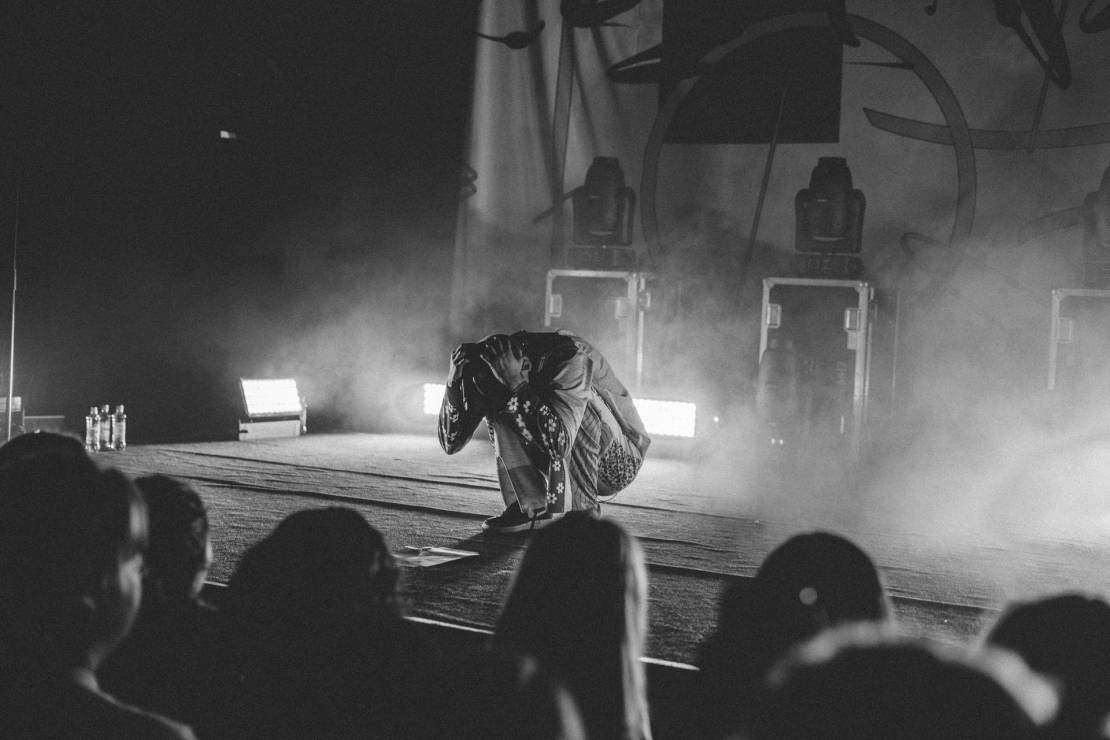
Stage fright or performance anxiety is the anxiety, fear, or persistent phobia which may be aroused in an individual by the requirement to perform in front of an audience, whether actually or potentially (for example, when performing before a camera). It affects all kinds of people who have to appear in front of an audience, even when they are not necessarily speaking. Musicians, dancers, politicians, students, or athletes are some of the various categories of people who can be affected by stage fright.
Stage fright is obviously a very horrible feeling that many people, even the most talented and famous musicians have experienced and are familiar with. It usually exacts a huge toll on self-confidence and self-esteem and causes some people to leave school or a job or pass up a promotion. Many, including seasoned professional performers, suffer in silent terror. And because they feel embarrassed, people try to keep their fear a secret, even from a spouse or other close family members or friends.
Musicians are always in a setting where they are likely being judged for their performance, the exact scenery that is needed for performance anxiety to bloom easily, be it in a small gathering or a large audience.
While stage fright may be seen on the stage or in the course of being in an environment that opens one to judgment from a few or many, it usually develops over time even before the main event occurs. People experience stage fright symptoms in different ways but it is not limited to any of the following:
Excessive dread or worry about the event
Feeling distant or withdrawn from others
Experiencing a sense of numbness
Dry mouth
Throat tightness (which can make talking painful)
Racing heartbeat
Perspiration
Nausea or vomiting
Stomach pains
Desire to escape and leave the scene
Intense paranoia about rejection or judgment
Shaking
Memory slips
Insecurity despite excellent preparation
Fear of ridicule by an audience
Embarrassment and shame
Worry that “something must be wrong with me”
For some people, stage fright is a side effect or subset of social anxiety disorder. This is a condition that is deeply rooted in fear of judgment and rejection. Some people, musicians inclusive, are quite antisocial and find it difficult to relate with others in the society they find themselves in. It, therefore, becomes hard for them to be able to perform in front of an audience they aren’t already comfortable with.
For most people, stage fright starts with a feeling of nervousness that compounds to anxiety. Anxiety triggers the body to activate its sympathetic nervous system, where the body releases adrenaline into the bloodstream, a response known as fight or flight syndrome, which is a process carried out by the body when it tries to protect itself from harm or perceives danger.
This adrenaline accounts for the physiological symptoms experienced during stage fright, such as shakes in places like the hands and legs, and the feeling of cold fingers, toes, nose, and ears. The patterns happen so quickly that we don’t recognize when it’s happening until we’re right in the middle of it.
Stage fright also being an anxiety disorder may also be a genetic problem. Research shows that genetic factors can play a prominent role in anxiety disorders. While there aren’t many studies examining the origin of stage fright, up to 30% of generalized anxiety disorder cases appear to be genetic, meaning it runs in families.
There isn’t a permanent, one-size-fits-all cure for stage fright. However, it’s absolutely possible to overcome most of the fear and learn to perform without excess anxiety. With the right mindset and skills, people can learn how to feel more comfortable in social situations. Musicians can learn how to be expressive on stage, and enjoy their performances without the fear of being judged or flopping their performance.
Some people also choose medication or natural remedies to help reduce their symptoms of performance anxiety. Talk with your physician to find the most appropriate treatment for you.
Seeing a therapist can help you explore the root of your stage fright and address other underlying concerns. Some people experience stage fright due to past experiences they’ve not gotten over. And some others are so affected by stage fright it affects the overall quality of their lives.
Rehearsing and practicing beforehand can aid in building the confidence needed to get on stage for that performance. Even the top dogs always rehearse before a gig, making it a habit will help reduce the chances of stage frights.
Practice ways to calm and relax your mind and body, such as deep breathing, relaxation exercises, yoga, and meditation. Deep breathing especially is useful in helping the body calm down intense situations.
Visualize your success: Always focus on your strength and ability to handle challenging situations. Positive visualization can help people perform better and feel more confident during performances.
Shift the focus from yourself and your fear to why you are on stage, to contributing something of value to your audience. Most of the time, if an audience is watching you, they want to learn or feel entertained. They aren’t necessarily there for you- they’re there for what you can offer them.
Expose yourself to more situations that allow you to practice the skill of mastering stage fright. Perform at more events, meet new people, leave your comfort zone. This helps you desensitize yourself to every feeling of uncertainty over time.




